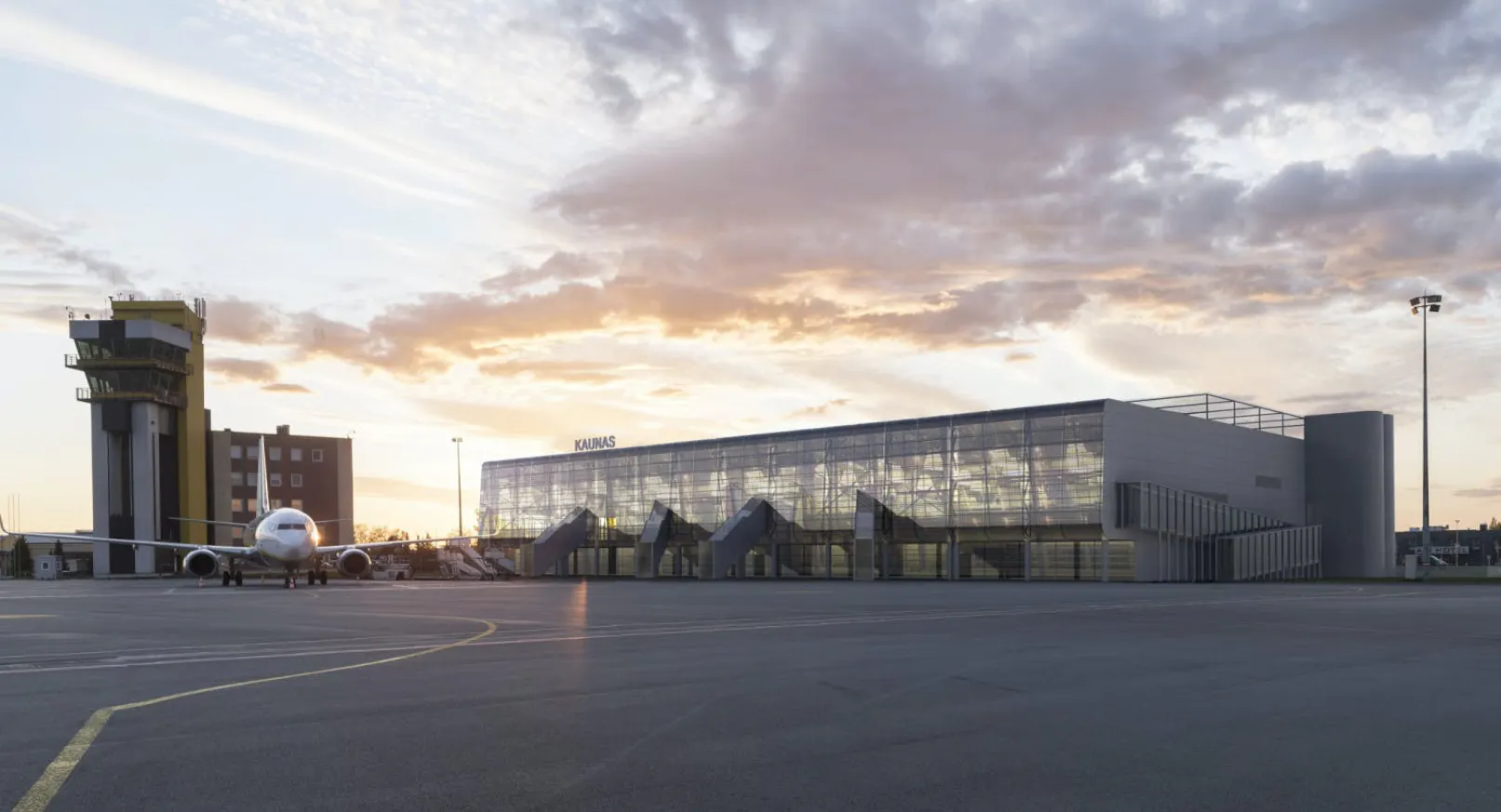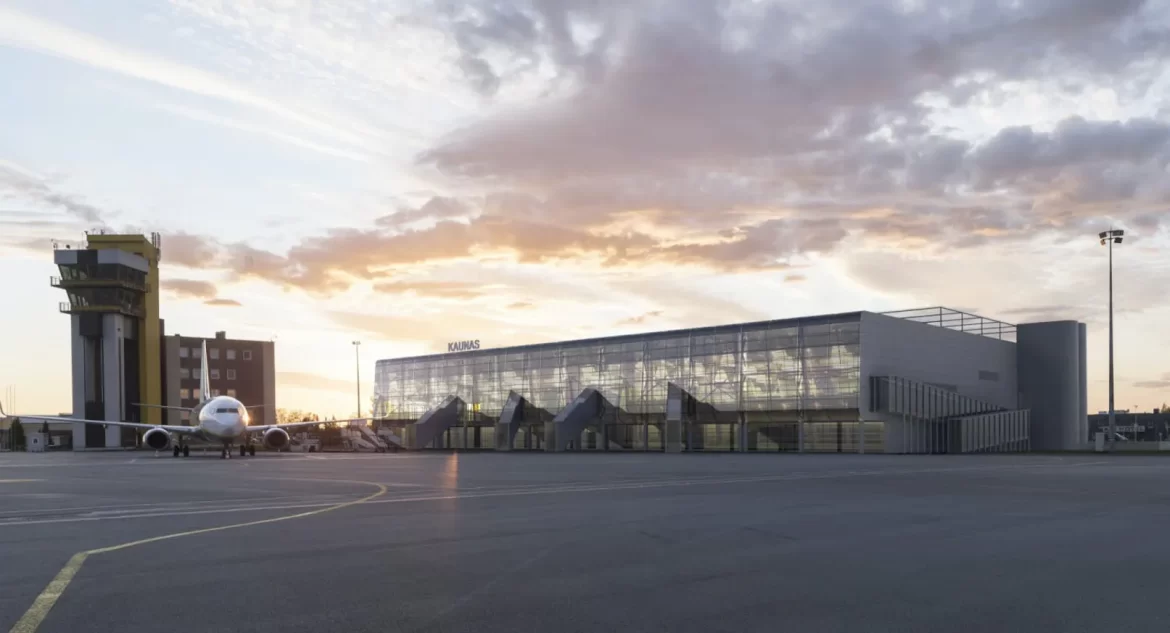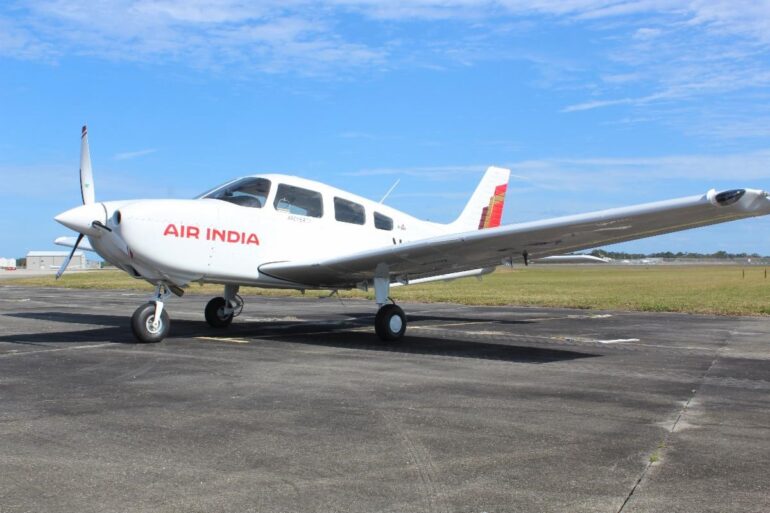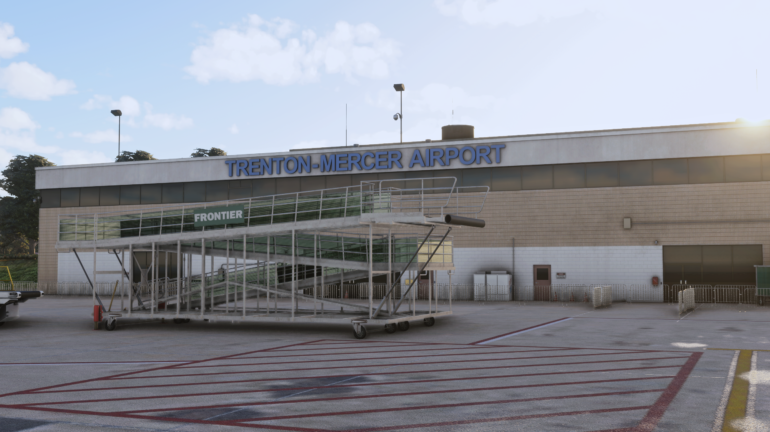AD
The expansion of the Kaunas Airport passenger terminal is expected to be completed in mid-2025. The total area of the terminal is expected to increase by around 4 400 000 square metres and the airport will be able to handle up to six passenger flights per hour.
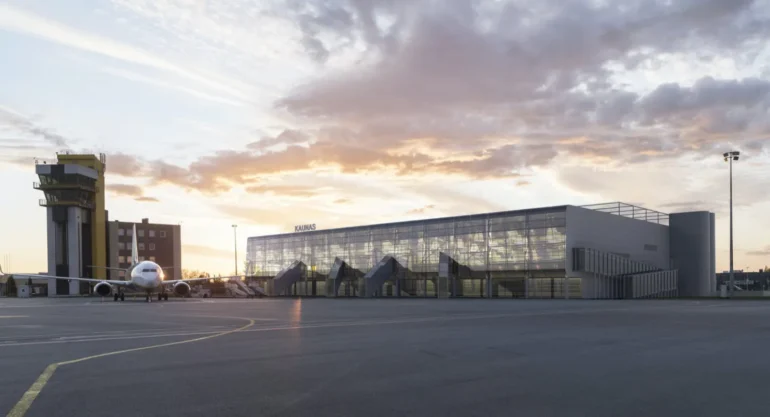
Lithuanian Airports has signed a contract with INFES, which has won a public tender and will carry out the expansion of the Kaunas Airport passenger terminal. The value of the contract is EUR 17.7 million (excluding VAT). The contractor is expected to start work in the first quarter of 2024 and finish in mid-2025.
The terminal expansion will double passenger capacity at Kaunas Airport to 2 million passengers per year.
“Kaunas Airport is demonstrating very strong passenger growth rates that far exceed the design capacity of the existing terminal building, so expansion is essential. The expanded terminal will be able to handle twice as many passengers – around 2 million travellers per year in total. This will respond to current travel trends and future growth prospects. Passengers will have more space and more technological advances, which means faster procedures and more comfortable waiting for flights,” says Arnas Dūmanas, Director of the Development Department of Lithuanian Airports.
According to the data of this year, passenger flows at Kaunas Airport are at a record high: it is expected that this year the airport will handle about 1.3 million passengers.
Kaunas Airport will expand both arrival and departure areas. The reconstruction will therefore initially require the extension of the side parts of the current terminal – the eastern and western facades of the building.
The expansion of the Kaunas Airport passenger terminal is expected to be completed in mid-2025. The total area of the terminal is expected to increase by around 4 400 000 square metres and the airport will be able to handle up to six passenger flights per hour. By comparison, Kaunas Airport is currently able to handle four passenger flights at a time.
Changes and innovations are planned on all three floors of Kaunas Airport terminal: baggage claim areas will be expanded, Schengen and non-Schengen arrival areas will be enlarged, and additional spaces will be created for passengers to wait for flights, eat or shop. These solutions will also increase the airport’s revenue from commercial activities.
According to Mr Dūmanas, Kaunas Airport will introduce automated passport screening solutions, and one of the most important innovations will be a new generation of scanners for screening passengers’ belongings, which are already being tested at the airport. Passengers will no longer have to remove any electronic devices from their hand luggage during aviation security screening, but will be able to see and analyse them, as well as other items, in three dimensions without removing them from their suitcases or rucksacks, thus speeding up the screening process.
Kaunas Airport will operate as normal during the expansion works, however, during some periods due to ongoing construction works there may be short-term inconveniences for passengers and partners.
AD

